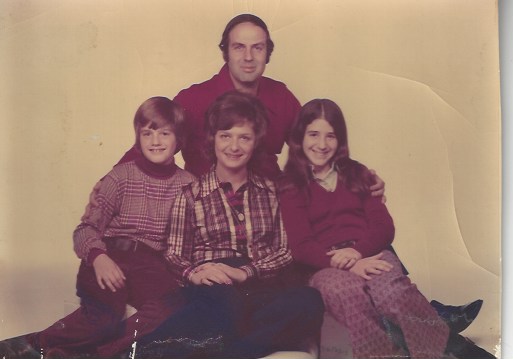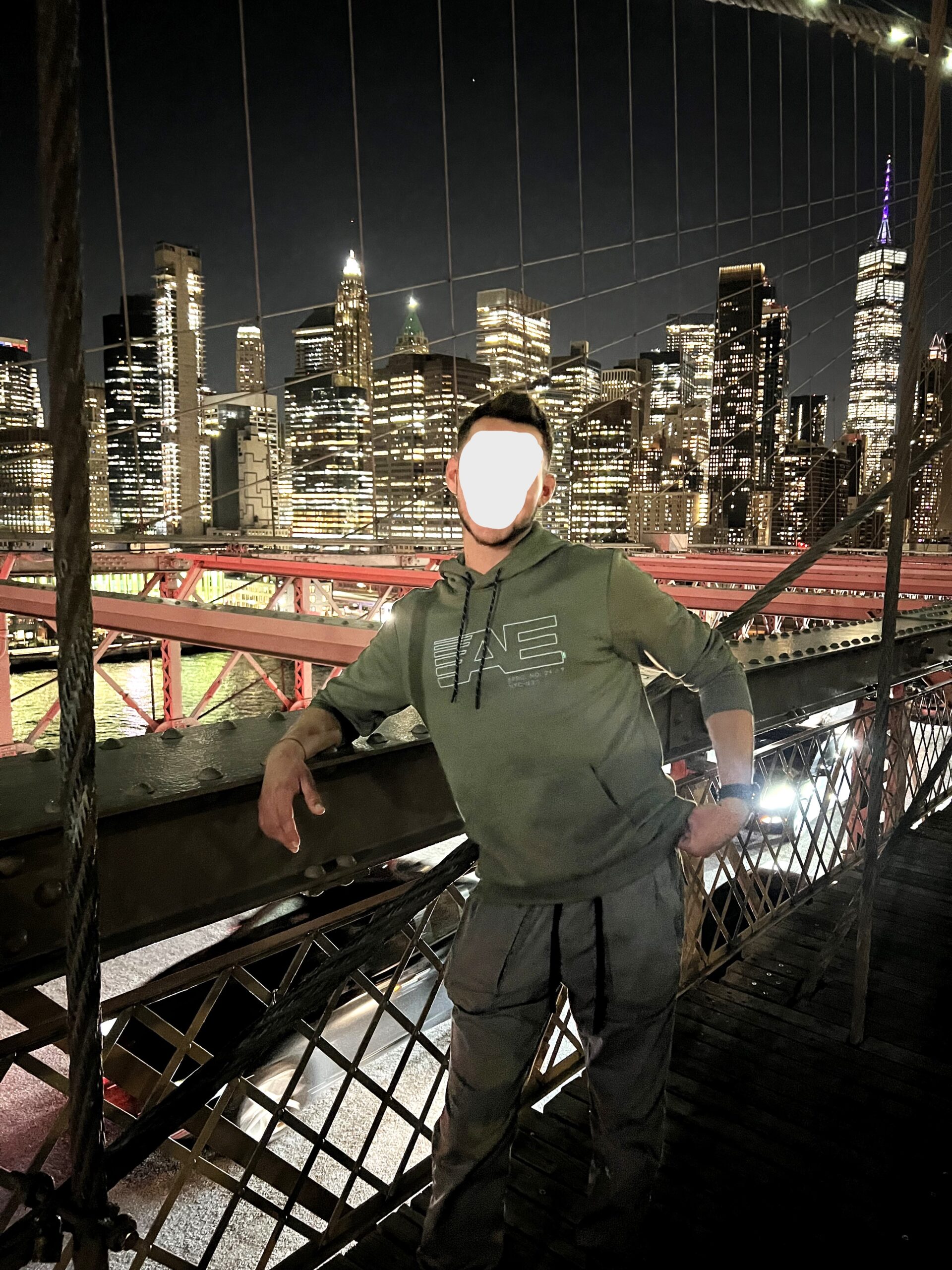
Sometimes our scars are invisible as we carry the trauma from childhood bullying throughout our lives. The following story is an excerpt from my debut memoir SOARING into Strength: Love Transcends Pain which shows how my brother’s illness and the subsequent bullying he faced for many years impacted the entire family constellation.

Gary, Lisa’s younger brother, whose childhood asthma resulted in him experiencing severe bullying.
Childhood asthma impacted so many aspects of our lives. Gary’s illness was an invisible presence, even as we pretended we were just like every other family on the block. We were always checking the weather and making sure that Gary remembered to pack his inhaler in his backpack. Mom had to make sure the school nurse always had an extra inhaler in her office. And then there were the days when the air was too heavy and Gary’s inhaler simply didn’t do the trick. There were too many emergency room visits to count.
I had already become Gary’s second mother because I saw how, all the times my brother was seriously ill, our entire family was in crisis. And, because of this awareness, I was always holding my breath beside my parents, anticipating another bad asthma attack.
Gary’s asthma went into high gear, especially in fall and spring. Even in the winter and summer Gary was not allowed to play rigorous contact sports. He had to sit on the sidelines during gym and recess. That’s where he got the nickname “asthma spaz.”
Finally, as Gary grew older, a doctor encouraged my parents to expose Gary to non-aerobic sports in order to strengthen his lungs. Running and other high endurance sports could trigger an asthma attack. So, Gary tried out and made the middle school wrestling team.
Sitting in the bleachers at the first wrestling match, my parents and I looked around. Fathers were screaming encouragement to their sons in a cacophony of aggressive threats: “Matt, kick the referee in the balls!” “Kill the bastard! What’s wrong with you?” Another father stood up and yelled, “Get back in there you sissy! Stop crying like a pathetic little girl, you pussy!” A red-faced man shouted indignantly to his ten-year-old son, “Jesus H. Christ, give him what you’ve got, draw some blood!”
This was not the environment we envisioned for my sweet little brother. In fact, it was a complete mystery to me how my parents restrained themselves from plucking Gary out of harm’s way and forcefully extracting him from the middle of the match. I mostly missed his sweaty bouts on the wrestling mat because my hands were covering my eyes the whole time. Gary lost, but lived to walk back to the team bench.
My mother touched my shoulder, “Lisa, you can open your eyes now, it’s finished. He’s okay.”
I enthusiastically gave him two thumbs up while mouthing the words, “Good job.” Then I noticed all of his teammates and their fathers glaring at Gary. His loss meant the team lost the tournament. I was trembling to think about the walk home from school the next day.
Gary quit the wrestling team. But even still, his loss reverberated. The next week, a few boys staked out positions in the bushes along our route home, ready to pounce on Gary. A big bully leaped onto Gary’s shoulders, tackled him to the sidewalk, and punched him repeatedly in the stomach and face. The smaller one threw Gary’s backpack into the street.
As I processed what had just happened, I launched a counterattack. I threw myself on top of the assailant who was punching Gary, desperate to pry him off my baby brother. Gary crawled away as I continued punching the bully while shrieking into his ear, “Leave.” Punch. “My.” Punch. “Brother.” Punch. “Alone!” Punch. “Don’t you…” Punch “… ever touch him again!” Punch punch punch. I looked up long enough to shout, “Help! Someone help us!” Yelling and punching like a deranged person, I added, “You are a horrible animal; stay away from my brother!”
A neighbor heard my screams and ran onto the sidewalk in front of her house wearing a housecoat and waving a broom at the bullies. “Next time I see you beating someone up, I’m going to call the police and have you boys arrested,” she shouted. Both wrestlers fled.
The lady ushered us into her home where we called our mother. I watched the neighbor gently pat damp paper towels on Gary’s cuts to wash away the blood. I thought about her kindness. She didn’t even know us, but her actions were healing a little bit of what those bullies had tried to injure.
The next day, I realized that my defensive maneuvers to protect my younger brother had backfired. As we walked home for lunch, the bullies taunted: “Little baby Honig has to walk with his big sister so she can take care of him. What a baby!”
In that painful moment, I realized that I had made things much, much worse. Gary and I kept walking and pretending that we were oblivious to their jeers. This incident taught me that no matter how hard I tried, I could never save Gary from his illness or from the harsh realities of life. But I could walk beside him so he would always know I was there.
Remember that “Kindness is doing what you can, where you are, with what you have.”
I’m sending you strength and love,
Lisa


